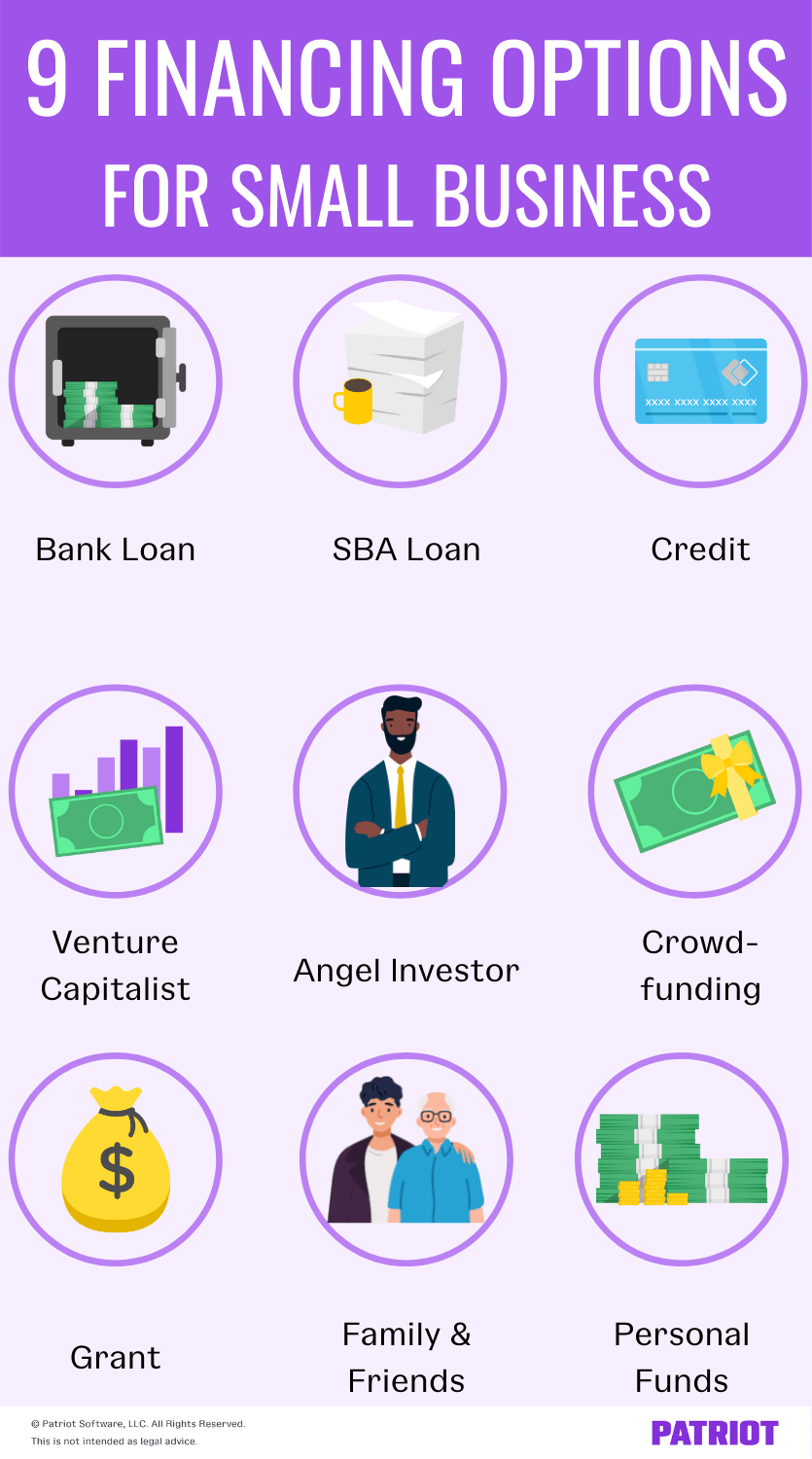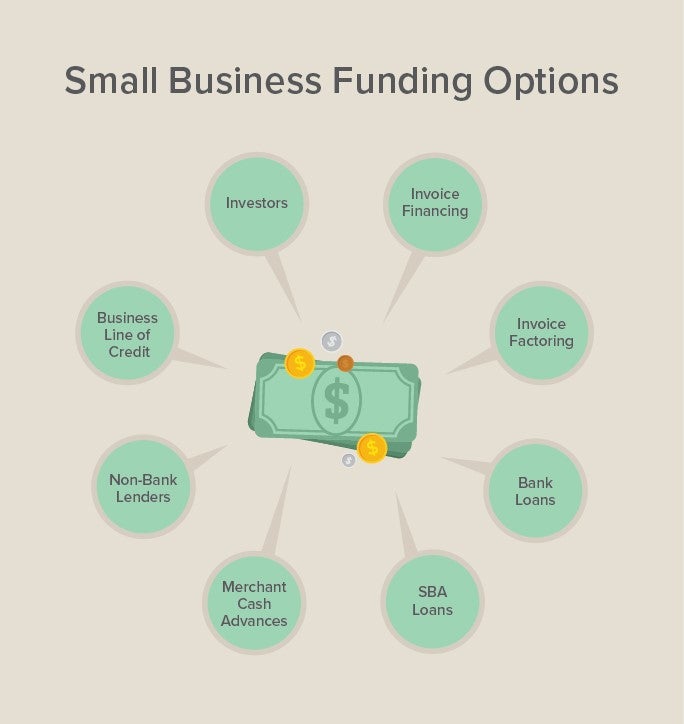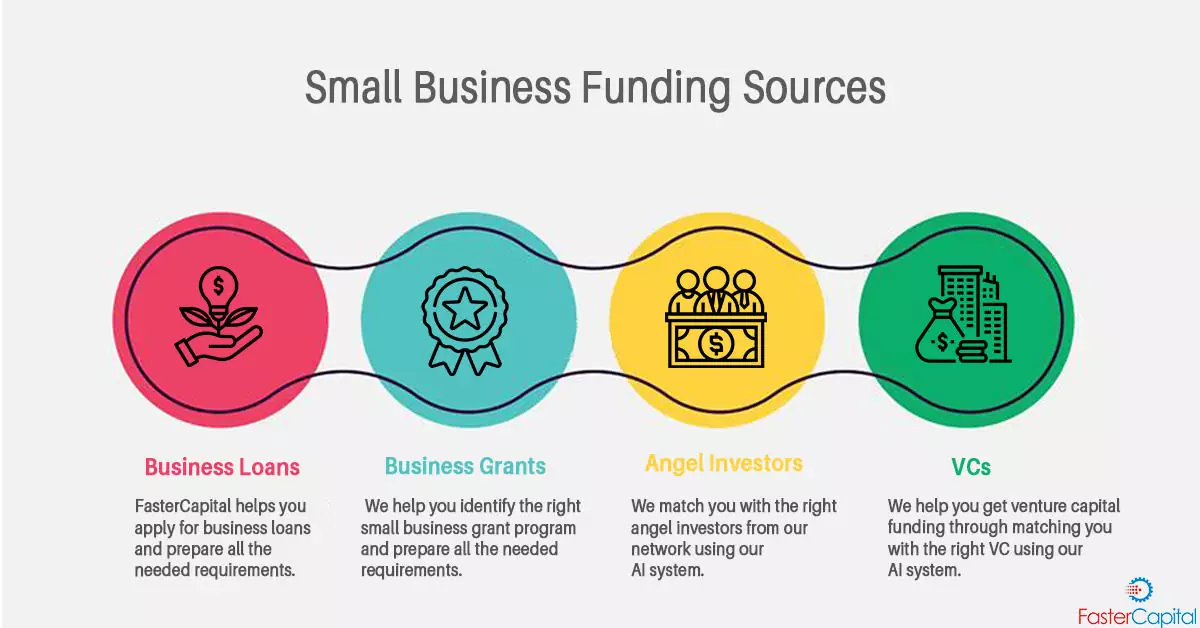Introduction to Funding Options for Small Businesses
In today’s dynamic marketplace, small businesses play a crucial role in driving economic growth and fostering innovation. Yet, one of the most significant challenges entrepreneurs face is securing adequate funding to breathe life into their visions. Navigating the myriad of funding options can be daunting, but understanding these options is vital for sustainable business success. This comprehensive guide will illuminate various funding avenues, helping small business owners make informed decisions about their financial future.
Whether you’re just starting or seeking to scale your operations, understanding funding fundamentals is crucial. Diverse funding sources—from loans and grants to crowdfunding and venture capital—offer unique benefits and limitations. Each source is tailored to different business needs and stages, whether for initial startup costs, expansion, or ongoing operational support.
In this guide, you’ll discover how to choose the most suitable funding strategy for your business goals. We’ll explore factors such as business needs assessment, dissecting terms and conditions, and evaluating risks versus rewards. Moreover, you’ll gain insights into practical steps to secure financing, including preparing a compelling business plan and gathering essential financial documents.
Our objective is to empower small business owners with knowledge, instilling confidence in their ability to select and secure the right funding for their ventures. With this guide, you’ll be better prepared to navigate the complexities of business financing, unlocking the potential for growth and success. For further insights on small business financing, consider exploring resources from reputable organizations like the Small Business Administration (SBA).
Stay tuned as we delve deeper into the types of funding sources available, empowering you with the understanding necessary to make the best decisions for your small business’s financial health.
Types of Funding Sources
In the ever-evolving landscape of small business funding, selecting the appropriate source of finance can make a significant difference in the growth trajectory of your business. As each funding option comes with its unique set of advantages and challenges, understanding these differences is crucial for making an informed decision. Below are four prevalent funding sources to consider:
1. Small Business Loans
Small business loans are a popular funding choice for entrepreneurs seeking a reliable financial foundation. Offered by banks, credit unions, and alternative lenders, these loans often feature competitive interest rates and a range of repayment terms. The key benefit of small business loans is that they do not require you to relinquish any equity in your business. To qualify, you typically need a strong credit score and a detailed business plan outlining your financial projections. For more in-depth guidance on securing a small business loan, consider visiting the Small Business Administration’s website.

2. Business Grants
For businesses looking for non-repayable yet competitive funding, business grants are an ideal option. These grants are typically offered by government agencies or private organizations and do not require repayment. However, the application process can be competitive and demanding, often involving strict criteria and detailed proposals. Despite these challenges, grants provide an excellent opportunity for businesses to grow without the burden of debt, making them highly appealing to startups and non-profit ventures.

3. Crowdfunding for Startups
Crowdfunding has revolutionized the way startups access funding by leveraging the power of the internet. Through platforms like Kickstarter and Indiegogo, entrepreneurs can present their ideas to a global audience, raising small amounts of money from a large number of people. This method not only funds your project but also acts as a validation tool to gauge public interest and potential demand for your product or service. Engaging potential backers with compelling pitches and rewards can significantly enhance your campaign’s success.

4. Venture Capital Funding
If you are a startup with high growth potential, venture capital (VC) funding might be the right fit for you. Venture capitalists invest in promising new companies in exchange for equity, aiming for substantial returns if the company succeeds. While VC funding brings access to substantial capital and expertise, it also means sharing control of your business with the investors. This type of funding is best suited for businesses in tech, biotech, and other fast-paced sectors where rapid scaling is feasible.

Each of these funding sources presents its own set of unique benefits and requirements. By understanding the nuances of each option, you can better align your funding choice with your business objectives and financial goals. For further insight into choosing the right funding sources, explore the next section on assessing your business needs.
How to Choose the Right Funding Option
Assessing Your Business Needs
Selecting the right funding option begins with a clear assessment of your business needs. Consider what you want the funding to achieve. Are you looking to expand operations, purchase new equipment, or simply cover daily operational costs? Different needs may require different types of funding. For example, a business loan might suit capital-intensive projects, while crowdfunding could be ideal for launching a new product.
Create a comprehensive business plan that outlines your goals, the amount of funding you need, and how you plan to use the funds. This will not only help you in selecting the right funding option but also prepare you for discussions with potential funders. According to Investopedia, having a clear understanding of your financial needs and goals is crucial in finding the right funding match.
Understanding the Terms and Conditions
Each funding source comes with its own set of terms and conditions. Whether you’re opting for a loan, grant, or equity investment, it is imperative to comprehend the specifics thoroughly. Interest rates, repayment schedules, equity dilution, or usage restrictions can significantly impact your business.
Before you commit, review the fine print with meticulous attention. Consider consulting a financial advisor or a legal expert to help decipher complex terms and conditions. This diligence will provide clarity and prevent unforeseen complications, ensuring that the funding option aligns with your business dynamics.
Evaluating Risks vs. Rewards
Every funding option carries its own risks and rewards. For instance, venture capital can provide substantial funds and business expertise but may also lead to significant ownership dilution. On the other hand, a business loan requires repayment with interest, impacting your cash flow.
It’s essential to weigh these risks against the potential rewards. Conduct a thorough risk assessment to determine how each option affects your financial stability and growth potential. Carefully evaluate scenarios where the rewards outweigh potential downsides, maintaining a balance that supports your long-term strategy.
In conclusion, matching your business needs with the right funding option involves a holistic approach. Combine a thorough needs assessment with a keen understanding of terms and conditions, culminating in a careful evaluation of risks versus rewards. This thoughtful process will guide you toward securing the most advantageous funding for your business’s unique needs.
Steps to Secure Funding
Preparing Your Business Plan
The foundation for securing funding lies in preparing a robust business plan. A well-crafted business plan not only showcases your vision but also highlights your business potential to potential investors or financial institutions. It should clearly articulate your business model, market analysis, organizational structure, product or service offerings, marketing strategy, and detailed financial projections.
- Executive Summary: Capture the essence of your business in a brief overview. This section is critical as it must immediately engage the reader and provide a compelling reason to continue reading.
- Market Analysis: Analyze the industry landscape to demonstrate your understanding of market trends and identify your target audience. Use this to justify the demand for your product or service.
- Marketing and Sales Strategy: Define how you plan to attract and retain customers, outlining your unique value proposition and competitive strategies.
- Financial Projections: Provide detailed forecasts, including income statements, cash flow statements, and balance sheets. It’s essential to highlight assumptions and justify your numbers based on market research and historical data if applicable.
-
Appendix: Include supporting documents and other pertinent materials that can solidify your business’s credibility, such as licenses, permits, or letters of recommendation.
A business plan not only helps to secure funding but also serves as a roadmap for running your business successfully. Research indicates that a comprehensive business plan can significantly increase your chances of attracting investors (source).
Gathering Financial Documents
Having your financial documents organized and readily accessible is critical for any funding application. Financial institutions and investors need to gauge your business’s past performance and future potential accurately.
- Income Statements: Offer insights into your company’s profitability over a given period. Ensure clarity and accuracy, as any discrepancies can cast doubt on your business’s reliability.
-
Balance Sheets: Provide a snapshot of your business’s financial standing at a particular moment, highlighting assets, liabilities, and equity. Potential investors will scrutinize this to assess the firm’s stability and liquidity.
-
Cash Flow Statements: Demonstrate your business’s cash flow over time, reflecting the business’s operational efficiency and financial flexibility.
-
Tax Returns: Present at least the last two years of tax returns to validate the financial health and legitimacy of your business.
-
Bank Statements: These reassure investors of your business banking activities, offering additional proof of your operational status and creditworthiness.
Being thorough and meticulous with your financial documentation will not only comply with lenders’ and investors’ prerequisites but also portray your business as disciplined and trustworthy. For additional guidance, the Small Business Administration (SBA) website offers great resources for understanding what specific documents are necessary (SBA Financial Documentation Guide).
Developing a solid business plan and maintaining well-organized financial documents are fundamental steps in the pursuit of securing funding. These preparations not only increase your odds of obtaining funds but also position your business solidly for future growth and success.
Conclusion
In today’s competitive marketplace, securing the right funding is paramount for small businesses aiming for growth and sustainability. By understanding the diverse types of funding available—ranging from traditional small business loans and business grants to innovative options like crowdfunding and venture capital—business owners can make informed decisions that align with their strategic goals.
Key Takeaways:
- Assess Your Needs: Carefully evaluate your company’s financial standing and future requirements. This will guide you in selecting the most suitable funding type.
- Understand Terms: Scrutinize the terms and conditions of each option to ensure alignment with your business values and capabilities.
- Risk vs. Reward: Weigh the potential risks against the rewards for each funding source. This will facilitate a balanced approach to financing.
- Prepare Thoroughly: A compelling business plan and complete financial documentation are crucial in portraying your business as an attractive opportunity to potential funders.
Mastering the steps to secure funding—from preparation to execution—is essential. The pathway to a successful funding strategy involves not only identifying resources but also effectively presenting your vision to potential investors or financial institutions.
For those seeking more detailed information on specific funding options, explore the comprehensive resources available at the U.S. Small Business Administration, which offer valuable insights and guidance.
By approaching funding with a strategic mindset and a clear understanding of your business’s unique needs, you lay the groundwork for sustained success and innovation within your industry.
FAQs about Funding Options for Small Businesses
Navigating through the funding landscape can be daunting, especially when you’re a small business owner seeking to grow. Below are some frequently asked questions about funding options for small businesses that can help you make informed decisions.
1. What are the most common funding options for small businesses?
Small businesses often turn to various sources for funding, including small business loans, business grants, and crowdfunding. Each option serves different needs. Small business loans offer a straightforward approach for those needing a lump sum to cover expenses quickly. Grants are advantageous for obtaining non-repayable funds, albeit with stringent qualification criteria. Crowdfunding, on the other hand, leverages community support and can also serve as a marketing tool.
2. How do I know which funding option is best for my business?
Choosing the right funding option requires a thorough assessment of your business needs. Consider the amount needed, your ability to repay, and the potential impact on your business equity. For businesses needing capital without diluting ownership, a loan might be preferable. However, if access to expert guidance is appealing, venture capital funding could be beneficial despite equity trade-offs. Carefully weigh the risks versus rewards before making a decision.
3. Are there grants available specifically for startups?
Yes, there are grants designed to support startups, though they can be competitive and often require meeting specific criteria related to industry, location, or business purpose. Grants.gov is a valuable resource for exploring federal grant opportunities. Additionally, local government and private organizations frequently release grant opportunities aimed at fostering innovation and entrepreneurial ventures.
4. What is the typical process to secure a small business loan?
Securing a small business loan typically involves several important steps. Initially, you’ll need to prepare a detailed business plan and gather all necessary financial documents, including income statements and balance sheets. This comprehensive preparation ensures lenders view your business as a viable investment. It’s crucial to understand the loan’s terms and conditions fully and to be clear on interest rates, repayment terms, and any potential fees.
5. Can startups utilize multiple funding sources simultaneously?
Absolutely. Many startups employ a hybrid funding approach, which can involve combining personal savings with loans, grants, and equity financing. This strategy diversifies risk and can provide a more substantial funding pool. However, it’s essential to manage these funds effectively and keep track of different obligations to avoid financial pitfalls.
By addressing these FAQs, small business owners can embark on their funding journey with greater confidence. Understanding the diverse options and their implications can empower entrepreneurs to make strategically sound decisions for their growing enterprises. Embrace the opportunities available, and utilize the resources at your disposal to secure the funding best suited to your business needs.
